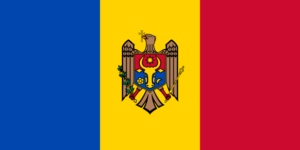 Moldova – a landlocked country bordering Ukraine and Romania – emerged as an independent republic following the collapse of the Soviet Union in 1991.
Moldova – a landlocked country bordering Ukraine and Romania – emerged as an independent republic following the collapse of the Soviet Union in 1991.
It is one of Europe’s poorest countries, with its economy relying heavily on agriculture. Two-thirds of Moldovans are of Romanian descent, and the two countries share a common cultural heritage.
The industrialised territory to the east of the Dniester, generally known as Transnistria or the Dniester region, was formally an autonomous area within Ukraine before 1940, when the Soviet Union combined it with Bessarabia to form the Moldavian Soviet Socialist Republic.
This area is mainly inhabited by Russian and Ukrainian speakers. As people there became concerned at the prospect of closer ties with Romania in final years of the Soviet Union, Transnistria unilaterally declared independence in 1990.
Since Russia’s 2022 invasion of Ukraine, Moldova’s pro-Western and pro-Russian factions have become increasingly divided.
In 2023-24 the US and then the EU sanctioned several pro-Russian politicians for collusion with Russia amid attempts to destabilise Moldova.
In 2024, voters narrowly backed proposed changes to its constitution and a commitment to joining the EU and also re-elected President Maia Sandu in a tense election seen as a choice between Europe and Russia..

